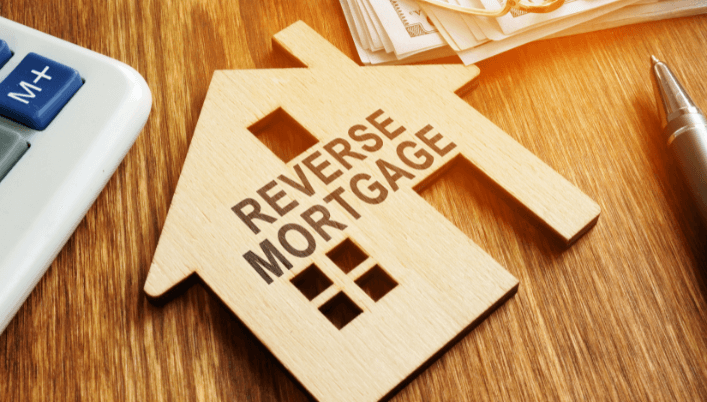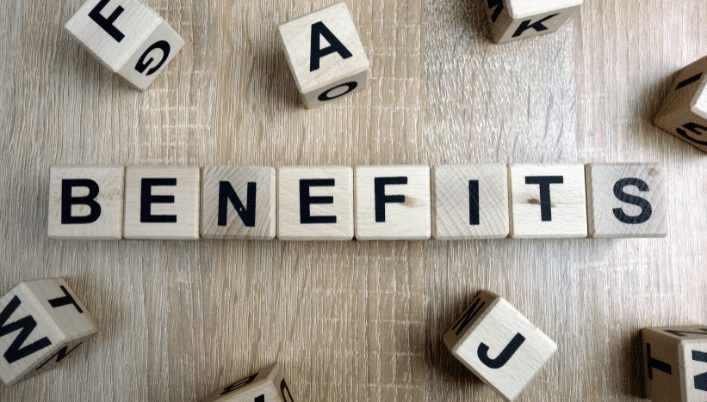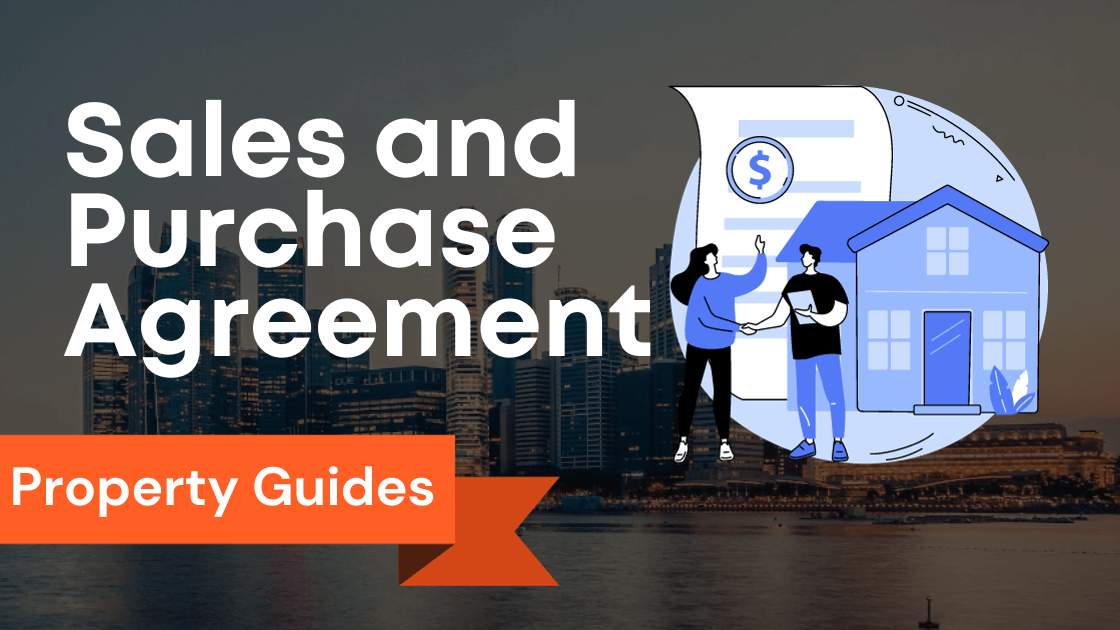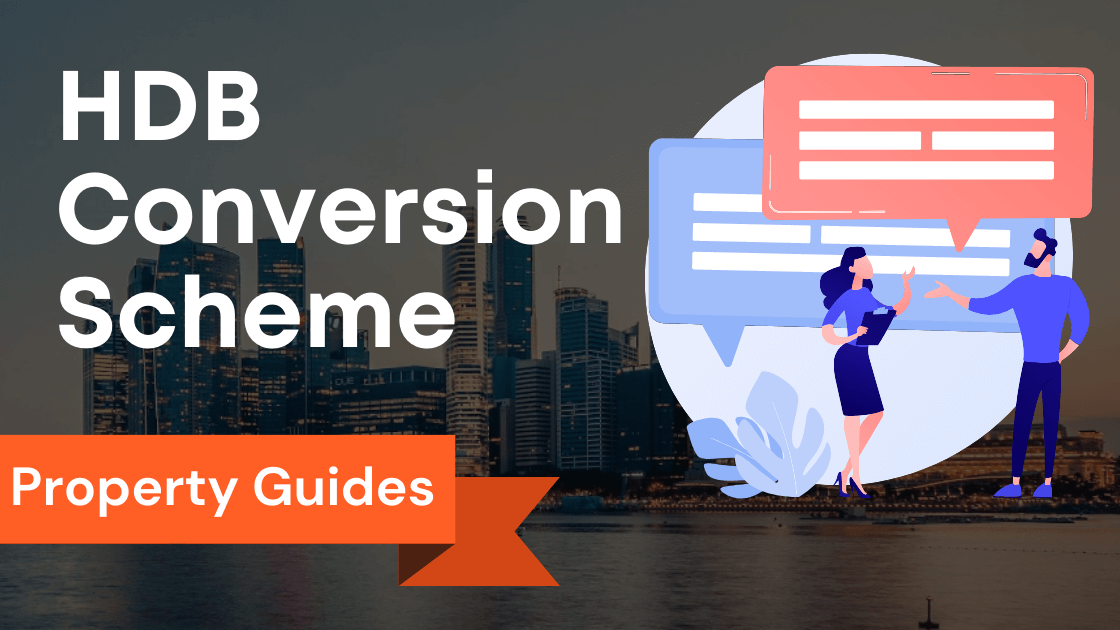What is a Reverse Mortgage?

A reverse mortgage is a unique financial product that allows homeowners to convert a portion of their home equity into cash without selling their property or making monthly mortgage payments.
Also known as a home equity conversion mortgage (HECM), a reverse mortgage is a government-insured loan that enables older homeowners to tap into the value of their homes and receive funds to supplement their retirement income.
Definition of a Reverse Mortgage
A reverse mortgage, as the name suggests, is the opposite of a regular mortgage.
Instead of the homeowner making monthly payments to the lender, the lender provides funds to the homeowner based on the equity in their home.
This financial product is specifically designed for seniors who are at least 62 years old and own their homes outright or have a low mortgage balance.
A reverse mortgage is a financial product that allows homeowners, particularly those of retirement age, to convert a portion of their home equity into cash.
This can help supplement their income or cover unexpected expenses.
Reverse mortgage products are often insured by the federal government, and the loan is repaid when the homeowner permanently moves out of the home, sells the property, or passes away.
One important consideration is the impact on a non-borrowing spouse.
In many countries, including Australia and Hong Kong, non-borrowing spouses have protections to ensure they can remain in the home even if the borrowing spouse passes away or moves to a care facility.
There are two main types of reverse mortgages: fixed-rate and adjustable-rate.
Fixed-rate reverse mortgages provide a one-time lump sum payment, while adjustable-rate reverse mortgages offer the option to receive monthly payments, a line of credit, or a combination of both.
The amount of money available to the borrower, known as the principal limit, is based on factors such as the home’s value, the borrower’s age, and the prevailing interest rates.
It is important for potential reverse mortgage borrowers to carefully review the terms of the loan, including any requirements for maintaining homeowners insurance, and to understand the implications for their real estate.
There is often an equity requirement to be eligible for a reverse mortgage, and in some cases, an investment property may not qualify.
One common misconception about reverse mortgages is that the lender takes ownership of the home.
In reality, the homeowner retains ownership, and the loan is repaid either through the sale of the property or from other assets in the borrower’s estate.
Additionally, reverse mortgages are generally considered non-recourse loans, meaning that the borrower (or their estate) is not personally liable for any shortfall between the loan balance and the sales price of the home.
Consumer protection concerns have been raised regarding reverse mortgages, primarily due to misunderstandings or poor practices.
However, various measures have been implemented to address these concerns and provide better protections for borrowers.
For example, the Federal Housing Administration (FHA) provides guidelines for lenders and borrowers, and the Financial Consumer Agency in Canada offers resources to help educate consumers about reverse mortgages.
Reverse mortgages can offer a viable financial solution for homeowners looking to access their home equity to support their retirement needs or address financial challenges.
However, it is crucial to seek independent advice, carefully consider the terms and conditions, and fully understand the potential costs and implications before proceeding with a reverse mortgage.
Types of Reverse Mortgages
There are three main types of reverse mortgages:
- Proprietary Reverse Mortgages: These are private loans that are not federally insured and are typically available for higher-value homes. They may offer larger loan amounts compared to government-insured reverse mortgages.
- Single-Purpose Reverse Mortgages: These are offered by state and local government agencies and certain nonprofit organizations. They are designed for specific purposes, such as home repairs or property taxes.
- Home Equity Conversion Mortgages (HECMs): These are the most common type of reverse mortgages and are insured by the Federal Housing Administration (FHA). HECMs are offered by approved lenders and have strict guidelines and regulations.
How does a Reverse Mortgage Work?
A reverse mortgage works by allowing homeowners to borrow against the value of their homes.
The loan amount is determined by factors such as the value of the home, the borrower’s age, and current interest rates.
Instead of making monthly payments, the loan balance increases over time as interest accrues on the borrowed amount.
The homeowner has the option to receive the loan proceeds as a lump sum, a line of credit, monthly payments, or a combination of these.
The choice depends on the individual’s financial needs and goals.
The loan is repaid when the homeowner sells the property, moves out of the home, or passes away.
At that time, the proceeds from the sale of the home are used to repay the loan, with any remaining equity going to the homeowner or their heirs.
If the sale of the home does not cover the loan balance, the FHA insurance will cover the difference.
It is important to note that reverse mortgages come with certain costs, including closing costs, mortgage insurance premiums, and interest charges.
These costs should be carefully considered when evaluating the viability of a reverse mortgage.
https://www.youtube.com/watch?v=90X5ZbDCONM
In conclusion, a reverse mortgage is a financial tool that allows homeowners to access the equity in their homes without selling the property.
It is important to thoroughly understand the different types of reverse mortgages and how they work before making a decision.
Consulting with a reverse mortgage lender or a financial advisor can provide valuable guidance in determining if a reverse mortgage is the right option for your specific situation.
Key Takeaways
- Definition of a Reverse Mortgage: A reverse mortgage is a financial product allowing homeowners aged 62 and older to access home equity without selling their property or making monthly mortgage payments.
- Types of Reverse Mortgages: Three main types include Proprietary Reverse Mortgages, Single-Purpose Reverse Mortgages, and Home Equity Conversion Mortgages (HECMs).
- How a Reverse Mortgage Works: Homeowners can borrow against home equity, with the loan amount based on factors like home value, borrower’s age, and interest rates. There are various payout options, and repayment occurs when selling the property, moving, or passing away.
- Benefits of a Reverse Mortgage: Benefits include providing regular income, access to home equity, flexible payout options, and tailoring for seniors. It doesn’t require monthly payments, and Singapore offers negative equity protection.
- Drawbacks of a Reverse Mortgage: Consider costs like Total Annual Loan Cost (TALC), servicing fees, mortgage insurance, and closing costs. The loan balance increases over time.
- Eligibility for a Reverse Mortgage in Singapore: Homeowners must be at least 55 years old, own a private residential property, and use it as their primary residence. Some government benefits may still allow eligibility.
- Steps to Get a Reverse Mortgage: The process involves researching reverse mortgages, consulting a financial advisor, submitting an application, undergoing a financial assessment, receiving a loan offer, reviewing and signing the loan agreement, completing required documentation, and managing the reverse mortgage effectively.
- Reverse Mortgage Lenders in Singapore: Choose reputable lenders based on factors like interest rates, loan balance management, terms and conditions, and communication and support.
- Reverse Mortgage Costs and Fees: Be aware of costs including Total Annual Loan Cost (TALC), servicing fees, mortgage insurance, and closing costs associated with a reverse mortgage.
- Avoiding Reverse Mortgage Scams: Protect against scams by choosing reputable lenders, working with certified counselors, understanding terms and conditions, avoiding unsolicited offers, not paying upfront fees, and verifying lender credentials.
- When to Consider a Reverse Mortgage: Consider a reverse mortgage when needing income for living or medical expenses, supplementing retirement income, or for additional financial flexibility.
- When Not to Consider a Reverse Mortgage: Avoid a reverse mortgage if planning to leave the property as an inheritance, selling the home soon, or if unsure about the tax implications.
- Alternatives to Reverse Mortgages in Singapore: Explore alternatives like home equity loans, traditional mortgages, home equity lines of credit (HELOCs), and personal loans, considering their pros and cons.
Reverse Mortgage Benefits and Drawbacks

Benefits of a reverse mortgage
When considering a reverse mortgage in Singapore, there are several benefits to take into account:
Income: A reverse mortgage provides homeowners with a regular stream of income, allowing them to supplement their retirement funds.
Access to Equity: The equity in a home can be converted into cash, providing homeowners with a valuable financial asset.
Flexibility: Homeowners have the option to receive the loan proceeds as a lump sum, line of credit, monthly payments, or a combination of these, depending on their financial needs.
Financial Product: A reverse mortgage is a financial product specifically designed to assist homeowners in accessing their home equity.
Equity Loan without Monthly Payments: Unlike traditional loans, a reverse mortgage does not require monthly repayments.
The loan balance increases over time as interest accrues on the borrowed amount.
Negative Equity Protection: The Singapore government provides negative equity protection, ensuring that homeowners and their heirs will not be held responsible for any amount of the loan that exceeds the value of the property.
Drawbacks of a reverse mortgage
While a reverse mortgage offers many benefits, there are also certain drawbacks to consider:
Total Annual Loan Cost: Reverse mortgages come with various costs, including closing costs, mortgage insurance premiums, and interest charges.
These costs can add up and should be carefully evaluated.
Debt and Expenses: Borrowers need to carefully manage their expenses as taking out a reverse mortgage increases their debt.
If not used wisely, it can lead to financial difficulties later on.
Property Taxes and Insurance: Homeowners are still responsible for paying property taxes and insurance while having a reverse mortgage.
Failure to make these payments can result in foreclosure.
Outstanding Loan Balance: The loan balance increases over time, potentially reducing the amount of home equity available to homeowners or their heirs in the future.
Federal Debt: A reverse mortgage is a loan that accrues interest, resulting in a debt to the borrower’s estate.
This debt must be repaid when the homeowner sells the property or passes away.
Who is eligible for a reverse mortgage in Singapore?
In Singapore, eligibility for a reverse mortgage, known as a Home Reversion Scheme or HECM loan, is determined by several factors:
Age: Homeowners must be at least 55 years old to be eligible for a reverse mortgage.
Property Type: The property must be a private residential property, excluding HDB flats.
Owner-Occupancy: The property must be the primary residence of the homeowner.
CPF LIFE: Homeowners who have fully paid their CPF LIFE premiums can use the scheme to monetize their property.
Government Benefits: Homeowners who are receiving government assistance, such as ComCare or Silver Support, may still be eligible for a reverse mortgage.
It is important for homeowners to carefully consider all the terms and conditions of a reverse mortgage before making a decision.
Consulting with a financial advisor or a reverse mortgage lender can help in understanding the specific eligibility requirements and potential implications of a reverse mortgage in Singapore.
https://www.youtube.com/watch?v=a3LIIZhqsQ4
Overall, a reverse mortgage can be a valuable tool for homeowners looking to access their home equity and supplement their retirement income.
However, it is crucial to thoroughly evaluate both the benefits and drawbacks of a reverse mortgage based on individual financial circumstances and goals.
How to Get a Reverse Mortgage in Singapore

Steps to get a reverse mortgage
Obtaining a reverse mortgage in Singapore involves several steps, but the process is relatively straightforward.
Here are the key steps to follow:
- Research and understand reverse mortgages: Begin by gathering information about reverse mortgages, their benefits, drawbacks, and eligibility requirements. Familiarize yourself with the terms and conditions associated with these loans.
- Consult with a financial advisor: Seek guidance from a qualified financial advisor who specializes in reverse mortgages. They can provide personalized advice based on your financial situation and goals.
- Apply: Once you have decided to proceed with a reverse mortgage, you will need to apply to a licensed lender. The lender will review your application and assess your eligibility.
- Undergo a financial assessment: As part of the application process, you may undergo a financial assessment to determine if you can meet your financial obligations, such as property taxes and insurance.
- Receive a loan offer: If your application is approved, the lender will provide you with a loan offer. This offer will outline the terms and conditions of the reverse mortgage, including the loan amount, interest rate, and repayment terms.
- Review and sign the loan agreement: Carefully review the loan agreement provided by the lender. Ensure that you fully understand the terms and conditions before signing. If needed, seek legal advice to clarify any questions or concerns.
- Complete the necessary documentation: Provide any additional documentation required by the lender, such as proof of identity, property ownership documents, and income verification.
- Receive the loan proceeds: Once all the documentation is in order, the lender will disburse the loan proceeds to you. You can choose to receive the funds as a lump sum, line of credit, monthly payments, or a combination of these, depending on your financial needs.
- Manage and monitor your reverse mortgage: After receiving the loan proceeds, it is important to carefully manage your finances and monitor the loan balance over time. Stay informed about any changes in interest rates or regulations that may affect your reverse mortgage.
Reverse mortgage lenders in Singapore
In Singapore, several lenders offer reverse mortgages, also known as Home Reversion Schemes or HECM loans.
These lenders are licensed and regulated by the Monetary Authority of Singapore (MAS).
It is recommended to choose a lender that has a good reputation and a track record of providing reliable and transparent services.
There are three main types of reverse mortgages available in Singapore:
- Term loan: This type of reverse mortgage provides borrowers with a fixed amount of money for a specified period. The borrower will receive monthly payouts until the terms of the loan are fulfilled.
- Line of credit: With a line of credit reverse mortgage, borrowers have flexibility in accessing their funds. They can withdraw money from their available credit as needed, similar to a revolving credit line.
- Combination loan: This type of reverse mortgage allows borrowers to combine the benefits of a term loan and a line of credit. They can receive a lump sum payment upfront and also have access to a line of credit for future use.
When selecting a reverse mortgage lender, consider the following factors:
- Interest rates: Compare the interest rates offered by different lenders to ensure you are getting a competitive rate.
- Loan balance: Understand how the loan balance will accumulate over time, as this will impact the total amount owed when the loan is repaid.
- Terms and conditions: Carefully review the terms and conditions of the loan offered by the lender. Ensure that you are comfortable with the repayment terms, interest rate adjustments, and any potential penalties or fees.
- Communication and support: Choose a lender that provides clear and timely communication throughout the loan process. It is important to have access to support and guidance whenever needed.
Reverse mortgage costs and fees
While reverse mortgages offer various benefits, it is essential to consider the associated costs and fees.
Here are some common costs to be aware of:
- Total Annual Loan Cost (TALC): TALC includes all the costs associated with a reverse mortgage, including closing costs, mortgage insurance premiums, and interest charges. It is important to calculate the TALC to understand the total cost of the loan over time.
- Servicing fees: Lenders may charge servicing fees for managing the reverse mortgage. These fees are typically added to the loan balance and accrue interest.
- Mortgage insurance fund: Borrowers are required to pay premiums for mortgage insurance, which protects the lender in case the loan balance exceeds the value of the property.
- Closing costs: Similar to traditional mortgages, reverse mortgages may involve various closing costs, such as legal fees, appraisal fees, and title search fees.
It is advisable to seek legal advice and carefully review the loan agreement to understand all the costs and fees associated with a reverse mortgage.
Understanding the financial implications will help you make an informed decision and determine if a reverse mortgage is the right option for your financial needs.
Overall, reverse mortgages can be a useful financial tool for homeowners in Singapore who want to tap into their home equity and supplement their retirement income.
By following the steps to obtain a reverse mortgage, selecting a reputable lender, and understanding the costs involved, borrowers can make informed decisions that align with their financial goals.
Reverse Mortgage Scams and How to Avoid Them

Common Reverse Mortgage Scams
Reverse mortgages can be a useful financial tool for homeowners in Singapore who want to tap into their home equity and supplement their retirement income.
However, it is important to be aware of common scams that target unsuspecting consumers.
These scams can lead to financial loss and distrust in the reverse mortgage industry.
One common scam is the equity skimming scam, where fraudsters promise to help homeowners qualify for a reverse mortgage by manipulating their income and assets.
They may charge excessive fees or provide false documentation to deceive lenders.
Homeowners should be cautious of anyone who asks for upfront fees or promises to ensure approval for a reverse mortgage.
Another scam to watch out for is the property flipping scam.
In this scheme, fraudsters purchase distressed properties at low prices and then inflate their value through fraudulent appraisals.
They convince homeowners to obtain a reverse mortgage on the inflated property and split the proceeds with them.
Homeowners should always verify the property’s value through an independent appraisal.
There are also instances of identity theft in the reverse mortgage industry.
Scammers may contact homeowners pretending to be legitimate reverse mortgage lenders or counselors.
They may ask for personal information, such as Social Security numbers or bank account details, under the guise of processing the loan.
Homeowners should never provide personal information to unsolicited callers and should always verify the legitimacy of the lender or counselor.
How to Avoid Reverse Mortgage Scams
To protect themselves from reverse mortgage scams, homeowners should follow these tips:
- Choose a reputable reverse mortgage lender: Research different lenders and check their reputation with consumer advocacy organizations, such as the Consumer Financial Protection Bureau or the Department of Housing and Urban Development. Look for lenders who have a track record of reliable and transparent services.
- Work with a certified reverse mortgage counselor: Seek guidance from a certified reverse mortgage counselor approved by the Housing and Urban Development Department. They can provide unbiased information and help you navigate the process, avoiding potential scams.
- Read and understand the terms and conditions: Thoroughly review the loan agreement and ask for clarification on any terms or conditions you do not understand. It is crucial to be aware of the interest rates, fees, and repayment terms associated with the reverse mortgage.
- Beware of unsolicited offers: Be cautious of unsolicited calls or emails offering reverse mortgage services. Legitimate lenders will not reach out to you without you initiating contact first.
- Do not pay upfront fees: Be skeptical of lenders who request upfront fees for processing a reverse mortgage application. Legitimate lenders typically charge fees that are paid during the loan closing process.
- Verify the lender’s credentials: Check if the lender is licensed and regulated by the Monetary Authority of Singapore (MAS). You can also inquire about their credentials and affiliations with industry organizations.
- Get multiple quotes: Obtain quotes from different lenders to compare interest rates, fees, and terms. This allows you to make an informed decision and avoid being taken advantage of by unscrupulous lenders.
Tips for Choosing a Reputable Reverse Mortgage Lender
When selecting a reverse mortgage lender, consider the following factors:
- Research their reputation: Look for reputable lenders with a proven track record in the reverse mortgage industry. Read online reviews and seek recommendations from trusted sources.
- Check their credentials: Ensure that the lender is licensed and regulated by MAS. Look for affiliations with industry organizations, which can indicate their commitment to high standards and ethical practices.
- Consider their customer service: Choose a lender that provides clear and timely communication throughout the loan process. It is essential to have access to support and guidance whenever needed.
- Compare interest rates: Shop around and compare the interest rates offered by different lenders. A lower interest rate can result in significant savings over the life of the reverse mortgage.
- Understand the terms and conditions: Carefully review the loan agreement and ensure that you are comfortable with the repayment terms, interest rate adjustments, and any potential penalties or fees.
- Seek professional advice: Consult with a financial advisor or lawyer who specializes in reverse mortgages. They can provide personalized advice and help you make an informed decision.
By following these tips and being vigilant, homeowners can protect themselves from falling victim to reverse mortgage scams.
It is crucial to conduct thorough research, ask questions, and verify the credibility of lenders and counselors.
Remember, a reputable lender will prioritize your best interests and provide transparent and reliable services.
Reverse Mortgages in Singapore: Is It Right for You?

Are you a homeowner in Singapore considering a reverse mortgage?
It’s essential to understand what a reverse mortgage is, its benefits, and whether it is the right financial option for you.
In this article, we will explore when to consider a reverse mortgage, when not to consider it, and what alternative options are available.
When to Consider a Reverse Mortgage
A reverse mortgage can be a viable option for homeowners in certain situations.
Here are some scenarios to consider:
- Living Expenses: If you are struggling to meet your daily living expenses and have limited income sources, a reverse mortgage can provide you with a steady stream of income to cover your needs.
- Medical Expenses: Dealing with expensive medical bills can be overwhelming. A reverse mortgage can help you access the equity in your home to pay for medical expenses and ensure you receive proper healthcare.
- Additional Income: If you want to supplement your retirement income or pursue new interests, a reverse mortgage can provide you with a regular cash flow without the need to sell your home.
It is crucial to carefully evaluate your financial situation and consult with a financial advisor to determine if a reverse mortgage aligns with your specific needs and goals.
When Not to Consider a Reverse Mortgage
While a reverse mortgage can be beneficial in certain circumstances, there are situations when it may not be the right option.
Here are factors to consider:
- Deceased Estate: If your primary goal is to leave your home as an inheritance for your loved ones, a reverse mortgage may not be suitable. The loan is typically repaid through the sale of the property, which may reduce the value of the estate.
- Sale Proceeds: If you are planning to sell your home shortly, a reverse mortgage may not be necessary. It is a long-term commitment, and selling your home can provide you with the funds you need without incurring debt.
- Tax Implications: It’s important to understand the tax implications of a reverse mortgage. While the loan proceeds are tax-free, they may affect your eligibility for certain government benefits or impact your tax bracket. Consult with a tax advisor to understand the potential implications.
Consider your long-term goals, financial obligations, and plans before deciding whether a reverse mortgage is the right fit for you.
Alternatives to Reverse Mortgages in Singapore
While reverse mortgages can be a great financial tool for some homeowners, there are alternative options worth considering.
These include:
- Home Equity Loan: A home equity loan allows you to borrow against the value of your home while retaining ownership. Unlike a reverse mortgage, you make monthly interest and principal payments, and the loan is typically repaid within a set term.
- Traditional Mortgage: If you are comfortable with monthly mortgage payments, a traditional mortgage can provide you with funds to cover expenses or make investments.
- Home Equity Line of Credit: Similar to a home equity loan, a home equity line of credit (HELOC) allows you to access funds based on the equity in your home. However, with a HELOC, you have a line of credit that you can draw from as needed.
- Personal Loan: If you only need a smaller amount of money for a specific purpose, such as home renovations or family emergencies, a personal loan may be a more suitable option.
Before making a decision, carefully evaluate the pros and cons of each alternative, considering factors such as interest rates, repayment terms, and eligibility requirements.
In conclusion, reverse mortgages can be a valuable financial tool for homeowners in Singapore who meet specific criteria.
It’s important to assess your financial situation, consult with professionals, and consider alternative options before making a decision.
By taking these steps, you can make an informed choice that aligns with your financial goals and priorities.
Conclusion
After examining the concept of reverse mortgages in Singapore, it is clear that this type of loan can be a valuable financial tool for homeowners.
It allows individuals to access the equity in their homes, providing them with a source of income or a lump sum payment.
However, it is essential to understand the responsibilities and factors associated with reverse mortgages.
One of the key considerations is the need to pay back the loan.
Unlike a traditional mortgage, where borrowers make monthly payments, with a reverse mortgage, the loan is repaid when the home is sold or the borrower no longer resides in the property.
This ensures that the lender receives their funds while allowing the homeowner to remain in the property.
The type of loan used to pay back a reverse mortgage is like a home equity loan or a home loan.
It is important to carefully consider the terms and conditions of the loan, including interest rates and repayment terms.
Additionally, it is crucial to be aware of the upfront mortgage insurance required for reverse mortgages, as it can affect the overall cost.
In the Singapore mortgage market, the equity conversion mortgage program is available for eligible homeowners.
This program provides a way to convert the equity in a home into cash, providing financial flexibility.
It is important to seek advice from reputable reverse mortgage companies to understand the options available and find the best fit for your specific situation.
A reverse mortgage lets homeowners access their home equity without having to sell their property.
This can be particularly beneficial for individuals who wish to age in place or need additional income during retirement.
However, it is crucial to fully understand the terms of a reverse mortgage before entering into any agreement.
In conclusion, reverse mortgages can be a useful tool for homeowners in Singapore to access their home equity and enhance their financial situation.
It is important to gather all the necessary information and seek guidance from professionals to make informed decisions.
Utilizing a reverse mortgage properly can provide financial stability and peace of mind during retirement years.
Remember, the decision to pursue a reverse mortgage depends on individual circumstances and goals.
It is important to carefully weigh the advantages and disadvantages and consult with the relevant experts before proceeding.
With proper knowledge and understanding, a reverse mortgage can be a beneficial financial tool for homeowners in Singapore.
Frequently Asked Questions
What is a reverse mortgage?
A reverse mortgage is a type of mortgage loan that allows homeowners to convert a portion of their home equity into cash, without the need to make monthly mortgage payments.
Instead, the loan is repaid when the borrower sells the home, moves out of the home, or passes away.
How does a reverse mortgage work?
With a reverse mortgage, the homeowner receives a loan advance that is based on the equity in their home.
This loan advance does not need to be repaid until the homeowner sells the home, moves out of the home, or passes away.
The loan balance each month slowly increases as the interest is added to the loan.
What are the different types of reverse mortgages?
There are three types of reverse mortgages: the Home Equity Conversion Mortgage (HECM) reverse mortgage, proprietary reverse mortgages, and single-purpose reverse mortgages.
The HECM reverse mortgage is the most common and is insured by the Federal Housing Administration (FHA).
Is a reverse mortgage right for me?
Whether or not a reverse mortgage is right for you depends on your financial situation and goals.
It is important to consider factors such as your age, the amount of equity in your home, and how long you plan to stay in your home.
Consulting with a reverse mortgage specialist can help you determine if a reverse mortgage is a suitable option for you.
How do I qualify for a reverse mortgage?
To qualify for a reverse mortgage, you must be at least 62 years old and own a home with sufficient equity.
Credit score and income requirements are typically not considered for a reverse mortgage, which makes it an attractive option for seniors who may not meet traditional mortgage criteria.
Can I use a reverse mortgage to pay off my existing mortgage?
Yes, one of the common uses of a reverse mortgage is to pay off an existing forward mortgage.
By using a reverse mortgage, homeowners can eliminate their monthly mortgage payments and have more financial flexibility.
What are the costs associated with a reverse mortgage?
The costs associated with a reverse mortgage may include an origination fee, closing costs, mortgage insurance premiums, and servicing fees.
These costs can be rolled into the loan balance or paid upfront, depending on the borrower’s preference.
How do I repay a reverse mortgage?
A reverse mortgage is typically repaid when the borrower sells the home or passes away.
The loan balance is paid off using the proceeds from the sale of the home.
If the homeowner’s heirs wish to keep the home, they can choose to repay the reverse mortgage with other funds.
Can I avoid a reverse mortgage and still access my home equity?
Yes, there are alternative options to accessing your home equity without a reverse mortgage.
You can consider options such as downsizing to a smaller home, taking out a home equity loan, or utilizing a home equity line of credit (HELOC).
Are there any income or credit score requirements for a reverse mortgage?
Unlike traditional forward mortgages, reverse mortgages generally do not have income or credit score requirements.
This makes them accessible to seniors who may have limited income or lower credit scores.












